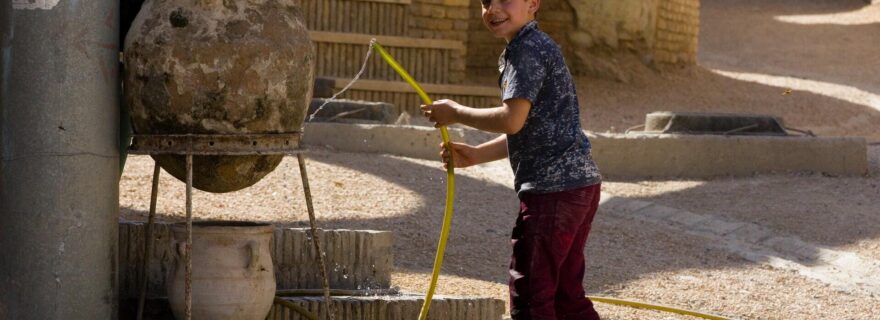Who will stand up for Dutch children in Syria and Iraq?
The Netherlands must respect children’s rights and take responsibility for Dutch children in camps in former IS areas.
As far as some Dutch political parties are concerned, Dutch children from former Islamic State (IS) areas who are currently residing in camps in Syria and Iraq are best left to fend for themselves. This stance is not only heartless, it also ignores the fact that these children, often very young and vulnerable, hold no responsibility whatsoever for the actions of their parents. They were taken by their parents at a young age to join IS, or were born there. Many of these children are younger than six years of age. We are talking about infants, toddlers and babies.
The stance taken by these political parties also ignores the fact that these children have clear ties to the Netherlands or even possess the Dutch nationality. On the grounds of international children’s rights, they are entitled to protection. And this protection is very much needed, since these children now find themselves in wretched circumstances where they are seriously threatened in their development. International organisations are calling on governments, including in the Netherlands, to make efforts to repatriate these children. This could prevent these children from losing every chance they have for a healthy development and ultimately a normal existence. In a recent case, the UN Committee on the Rights of the Child indicated that France cannot wash its hands of the French children who are trapped in North Syria in conditions comparable to those of the Dutch children. At the beginning of July, the Commissioner for Human Rights of the Council of Europe emphasised that European countries must give priority to the repatriation of foreign children from the camps in North-East Syria.
Of course, we must not close our eyes to the role of the parents of these children, often mothers, and for the interests of the victims of heinous deeds committed by IS. In addition, these children are possibly severely traumatised and, if older, perhaps also indoctrinated. This calls for specific attention and specialist support on arrival in the Netherlands. In a country such as the Netherlands, we can provide such attention and support and we should make every effort to do so. We are, after all, obliged to do so on the grounds of the UN Children’s Rights Convention.
It was good that the Dutch Lower House earlier this summer talked about the return of women and children from former IS areas – in a plenary debate for the first time. I now urge that specific attention is paid to these children, as young people with independent interests and rights. We should not push them away, but instead embrace them. In doing so, we would not only acknowledge that children often pay the highest price in armed conflicts such as this, though carrying no blame themselves, but we would also stand up and take responsibility in a situation in which no-one at all seems to care. It is in the interest of these children, but also the interest of our society, that we stand up for them. If the Netherlands doesn’t do this, then who will?
This contribution was previously published in Dutch newspaper NRC Handelsblad and updated for Leiden Law Blog on 27 August 2021.
See also this article written by Chrisje Sandelowsky-Bosman & Ton Liefaard.



0 Comments
Add a comment